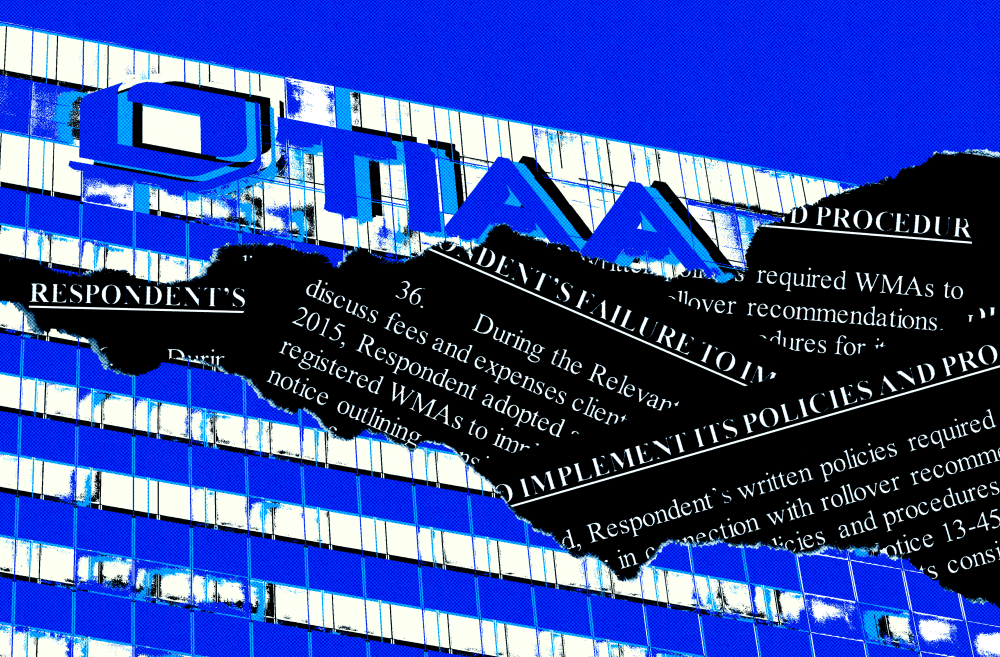To recover losses, TIAA, a significant investment advisory firm, is reportedly urging retirement savers to opt for in-house products, sparking controversy and whistleblower complaints.
A Troubling Shift in Strategy
In January 2023, around 250 financial consultants from TIAA gathered in Texas for a meeting dubbed “A New Day for Financial Consultants.” The objective was to train consultants on using an in-house advice tool to encourage clients to modify their investments. This push aimed to offset significant losses in TIAA’s core business—recordkeeping for retirement plans at colleges and nonprofits. As an executive revealed, “Where we make that up is on the product side.”
Whistleblower Allegations
A whistleblower complaint filed with the SEC in June alleges that TIAA’s advice tool is designed to steer clients into two in-house investment products, generating substantial profits for the firm. TIAA’s financial consultants are incentivized with bonuses to promote these products, and executives also benefit financially. The whistleblower claimed TIAA misled clients by presenting the tool as offering objective, independent advice tailored to their needs. “TIAA works very hard to earn and keep our client’s trust,” a company spokesman said, refuting the allegations.
Financial Challenges and Market Competition
TIAA manages $1.2 trillion for 5 million clients, primarily from the education sector. However, the firm faces stiff competition from giants like Fidelity and Vanguard, who offer lower-cost investment options. This market shift has led to financial strains for TIAA, as evidenced by its declining performance in recordkeeping for retirement plans.
Internal Strategies to Boost Profits
During a sales meeting, TIAA’s finance director, Thomas Rajotte, highlighted the need to push proprietary products to compensate for losses in recordkeeping revenues. “If they [clients] have Vanguard, we’re not earning any money on the product, and we’re losing money on the recordkeeping,” Rajotte explained. This strategy ensures that clients remain invested in TIAA’s higher-fee products despite the competitive landscape.
Previous Regulatory Scrutiny
TIAA has faced multiple regulatory actions for prioritizing its interests over clients. Over the past five years, the firm has paid over $100 million in penalties to settle allegations of undisclosed conflicts of interest. In 2021, the SEC fined TIAA $97 million for failing to disclose conflicts in an asset-shifting campaign. A former TIAA adviser, Ted Fitzpatrick, was instrumental in exposing these practices. “It’s frustrating to see that TIAA doesn’t view their customers’ money as sacred,” he lamented.
The Role of In-House Products
TIAA’s in-house products, such as the TIAA Traditional annuity, are key revenue generators. Chris Tobe, a pension investment expert, estimates that TIAA makes around 1.2% of TIAA Traditional investments, significantly more than other investments. However, these products’ high costs and underperformance raise concerns about their suitability for clients. For instance, TIAA’s real estate product has consistently underperformed compared to market indices.
Lack of Transparency and Client Impact
The whistleblower complaint also criticizes TIAA for not adequately disclosing the financial interests tied to the advice tool. Clients using the tool are funneled into high-cost TIAA products without clear disclosures about the consultants’ incentives. This lack of transparency has significant financial implications for clients, often resulting in poorer investment outcomes than cheaper, better-performing alternatives.
A Call for Greater Transparency
TIAA’s recent efforts to boost profits by pushing costly in-house products on retirement savers highlight the need for greater transparency and accountability in the financial industry. While TIAA denies any wrongdoing, the whistleblower allegations and historical regulatory actions paint a concerning picture. As Ted Fitzpatrick noted, “They are worried about surviving,” but at what cost to their clients? For those relying on TIAA for their retirement savings, these revelations underscore the importance of vigilance and informed decision-making.







